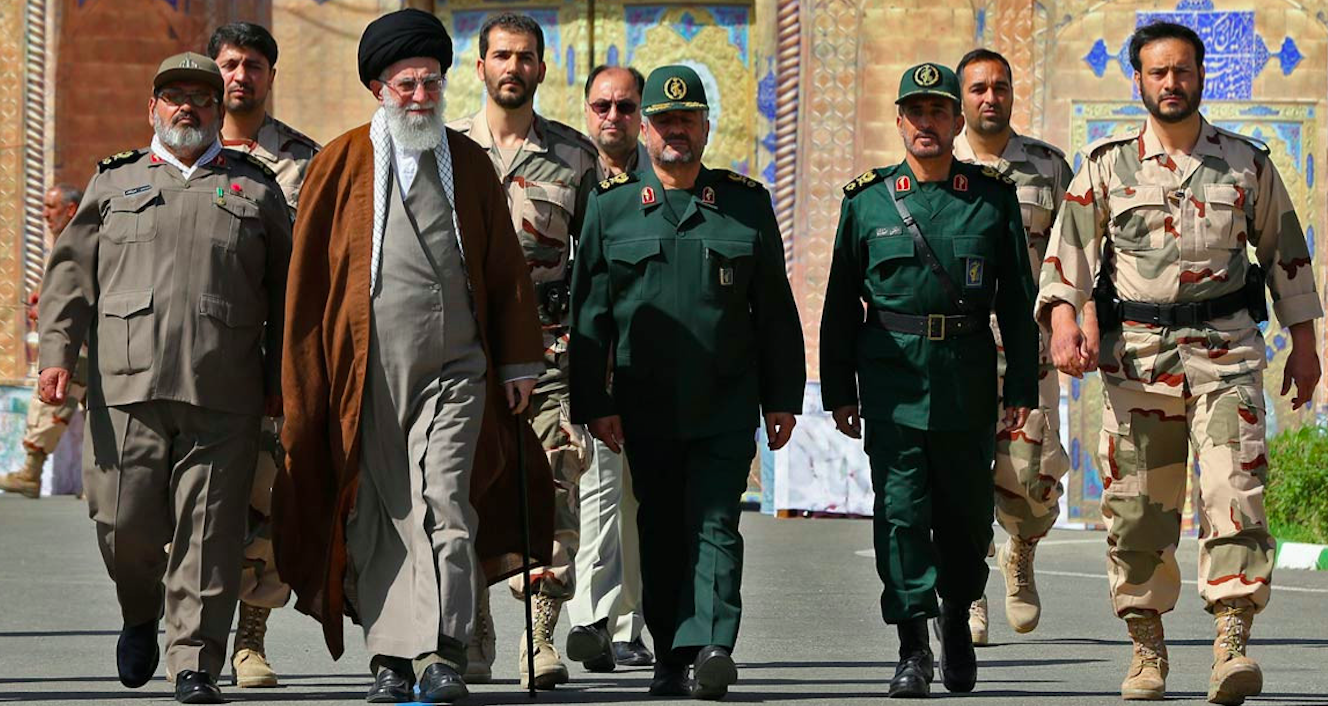Chief of the General Staff of the Iranian Armed Forces Mohammad Bagheri said on Wednesday that Iran will come up with ‘more powerful response’ if Israel retaliates.
Iran defended the massive missile attack on Israel saying they acted in accordance with Article 51 of the UN charter, exercising self-defense by targeting solely military and security sites.
“We exercised tremendous restraint for almost two months, to give space for a ceasefire in Gaza. Our operation [may be] considered complete until the Israeli regime decides to resort to a new [act of] retaliation,” said Iranian Foreign Minister Abbas Araghchi.
On the night of October 1, the Islamic Revolutionary Guard Corps fired ballistic and hypersonic missiles of which 90% of the launched missiles hit their designated targets inside Israel.
Two Israeli Air Force bases and the headquarters of Israel’s Mossad intelligence service were bombed.
“Israel’s enablers now have heightened responsibility to rein in the warmongers in Tel Aviv instead of getting involved in their folly,” Araghchi added.
Israeli Prime Minister Benjamin Netanyahu described Iran’s massive missile attack on his country as a ‘big mistake’ and said Tehran would pay for it. “Iran made a big mistake today and will pay for it. The Iranian regime does not understand our determination to defend ourselves and our determination to take revenge on our enemies,” he said.
The Islamic Revolution Guard Corps (IRGC) said that during Operation True Promise in mid-April, Tehran hit a number of military targets after the regime struck Iran’s embassy in Damascus. Its Tuesday attack has been dubbed Operation True Promise II.
During its first attack against Israel, the IRGC used about 300 of its older technology drones and a handful of ballistic missiles.
Reports show the second operation featured a higher level of technological sophistication and deployed a wider array of weapons.
“Despite the targeted region receiving protection from a number of highly sophisticated defense systems, about 90% of our fired missiles successfully hit their targets, rendering the Zionists horrified of Iran’s intelligence and operational capabilities,” IRGC stated.
Videos Israeli settlers shared online show several missiles landing inside the occupied territories.
However, Israeli officials proceeded to ban the distribution of footage capturing the aftermath of the attacks shortly after Iran’s operation ended.
“Netanyahu must know that Iran is not looking to enter wars, but it firmly stands against any threats. This was only a small part of our capabilities. Do not quarrel with Iran,” said Iranian President Masoud Pezeshkian.
Iranian citizens took to the streets across the country to celebrate the operation. In Tehran’s Palestine square, people chanted “Thank you”, showing appreciation to the Leader of the Islamic Revolution as well as military officials of the country.
Across the Muslim world, citizens in Yemen, Lebanon, Jordan, Iraq, Syria, and Gaza chanted slogans and thanking Iran.
Resistance groups including Hamas, Ansarullah, Hezbollah, and Iraq’s popular forces all issued statements praising Iran for the successful execution of Operation True Promise II.
In Israel, reports show that high-ranking officials including Prime Minister Benjamin Netanyahu entered underground shelters minutes after the attacks began.
The Israeli military’s spokesperson said the U.S. helped down the Iranian weapons, not commenting on how many of the projectiles they managed to intercept.
Last time Iran struck, Tel Aviv and Washington were quick to claim that “90%” of the Iranian missiles and drones had been downed.
Following the missile strikes, U.S. President Joe Biden abruptly changed his schedule and joined his vice president in the Situation Room to assess the circumstances.
White House National Security Advisor Jake Sullivan later said in a press conference that Washington had joined Israeli air defense units in firing at Iranian missiles. He claimed Iran’s attack “appears to have been defeated”.




















